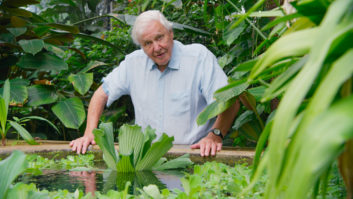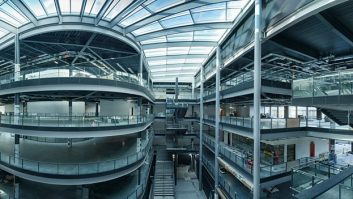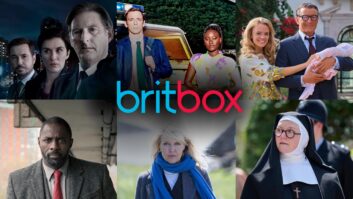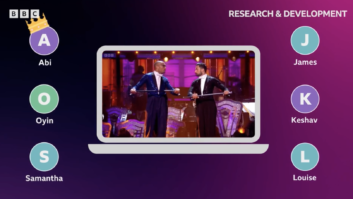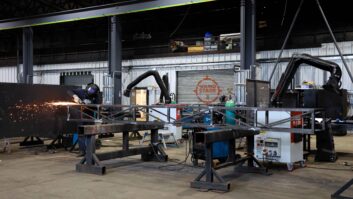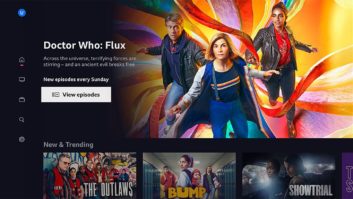
The BBC is launching a year-long season of science and technology programming under the banner of Tomorrow’s World.
Designed to “take science out of the lab and into peoples homes”, as the BBC seeks to “address how science is changing peoples’ lives, reshaping the world, and rewriting the future of healthcare.”
The corporation said it aims to “make science personal” with the biggest scientific partnership it has ever convened to answer the big questions relevant to everyone.
Tony Hall, BBC director-general, said: “We’ve come together behind a simple, and very bold ambition – to equip all of us with the knowledge and understanding we need to make sense of our lives and the future. Whether it’s the rise of robotics or the demise of antibiotics, travelling to Mars or the arrival of 3D printed food. Science is changing the world at an extraordinary pace.
“The campaign will connect audiences with the brightest minds and institutions in science and technology, producing more than 40 hours of television, a range of programmes across our radio networks, a series of podcasts, and digital offerings, made in collaboration with partners, including the Science Museum Group, Wellcome, The Open University and the Royal Society.”
Tomorrow’s World highlights include:
– A Digital Hub – at the heart of the campaign – will bring together the most respected science institutions from across the UK for the first time. Curated daily, and featuring content from across the partnership, it will engage audience interest in the broadcasts, topical events and social media
– Britain’s Greatest Inventions – a live show presented from the Science Museum Group’s stores by Dr Hannah Fry and Ant Anstead for BBC Two where the public will vote, from a shortlist, for the invention which they feel has been of most influence and importance in their lives
– 10 Things You Need To Know About The Future, presented by Dr Hannah Fry for BBC Two, where she and top science experts investigate the questions the British public wants to know about the future
– Professor Stephen Hawking will present his predictions that the human race only has one hundred years before we need to colonise another planet in Stephen Hawking: Expedition New Earth for BBC Two
To engage people who want to know more and debate these topics, the digital hub at www.bbc.co.uk/tomorrowsworld will feature a range of content made by BBC and its partners. Curated daily, it will reflect interest in the broadcasts, topical events and social media.
The hub will also offer short films, a series of citizen science opportunities to engage with the audience, interactive calculators and many other interactive features. The content will follow Tomorrow’s World themes such as contagion; artificial intelligence; sleep; and “use science to help people better understand themselves.”
There will also be Twitter Q&As, online debates, and a Facebook community.
Ian Blatchford, director of the Science Museum Group, added: “The marriage of our world-class collections, expertise and rich programming with the BBC’s worldwide reach is a truly exciting prospect. The Tomorrow’s World partnership is already bearing fruit with Britain’s Greatest Inventions, a 90-minute live broadcast from our stores that will air on BBC Two.
“The BBC’s TV cameras have been granted exclusive access to our stores to explore our incredible objects and reveal the stories of some of the greatest inventions in history.”
